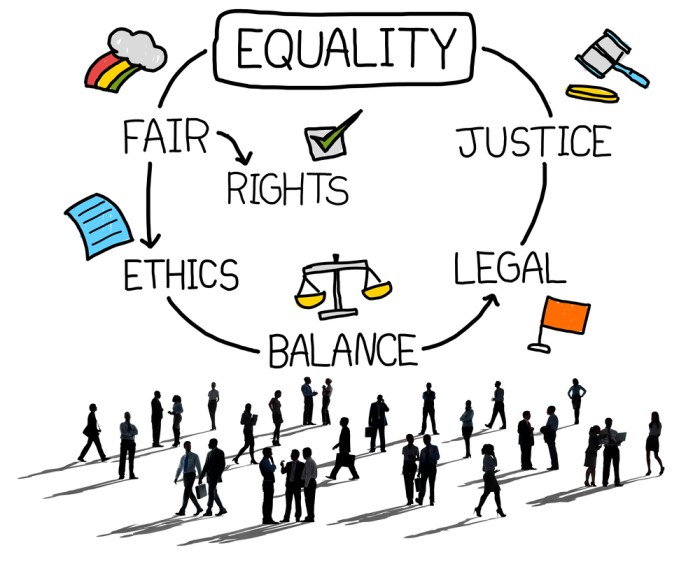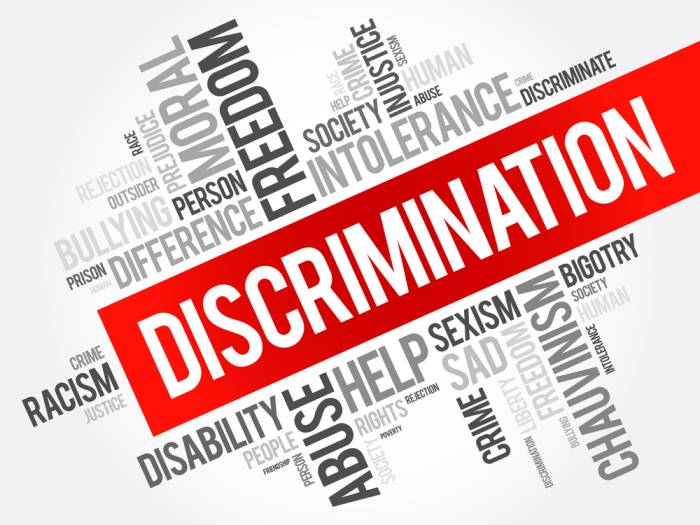The post Unfair Dismissal Compensation & Payout: How is it Calculated? appeared first on AWDR.
]]>In this article, we will explore what the average payout for unfair dismissal is in Australia, including overall considerations and how a compensation payout is calculated.
Resolution By Way of The Fair Work Commission
The Fair Work Commission (FWC) is the government agency responsible for resolving disputes between employees and employers in Australia. When an employee files an unfair dismissal claim with the FWC, the Commission will consider several factors before determining an appropriate remedy, including the employee’s length of service, their age, their earnings, and the circumstances surrounding the dismissal.
The FWC has the power to order an employer to reinstate an unfairly dismissed employee, but this is a relatively rare outcome. More commonly, the FWC will award the employee compensation in the form of a monetary payout. The amount of compensation awarded will depend on a range of factors, including the employee’s earnings and the impact that the dismissal had on their financial position.
Unfair Dismissal Compensation
There is no set amount of compensation that an unfairly dismissed employee is entitled to receive in Australia. The FWC will consider each case on its merits and make a determination based on the individual circumstances of the case. However, there are some general trends and guidelines that can give employees an idea of what they might expect to receive in compensation.
Compensation Payout Cap
According to data from the FWC, the median compensation payout for unfair dismissal in Australia in 2020-2021 was $13,320. However, it’s worth noting that this figure only takes into account the cases that were heard and decided by the FWC. Many unfair dismissal claims are settled out of court, and the terms of these settlements are not publicly available.
The FWC can order up to the lesser of two amounts: either half of the employee’s yearly salary, or the compensation cap, which is $79,250 for the period of 2021-22 and is subject to change on July 1st of each year. For reference on the compensation cap, refer to the compensation for unfair dismissal as outlined by the Fair Work Commission.
It is important to remember that this is the maximum amount, and not all employees will receive this much in compensation.
Review examples of unfair dismissal cases and compensation awarded.
Ruling Considerations
Compensation for unfair dismissal can be complex. The Fair Work Commission will provide ruling with reference to section 392 Remedy Compensation within the Fair Work Act 2009.

Employee Considerations in Compensation Payout Order
In addition to the employee’s earnings, when making an order of compensation the FWC will consider other factors when determining the amount of compensation to be awarded. For example, employment, any influence of harassment or discrimination, and length of employment.
Employment
The Fair Work Commission will in dome cases take into consideration whether the employee was able to find alternative employment quickly after their dismissal. Employees may receive a lower payout than someone who was unable to find work for an extended period.
Harassment and Discrimination
Similarly, to the above, if the employee was unfairly dismissed in a particularly egregious manner, such as being subjected to harassment or discrimination, they may receive a higher payout than someone who was dismissed for less serious reasons.
Length of Employment
Another important factor that can impact the amount of compensation awarded is the length of the employee’s service with the employer. In general, employees who have worked for their employer for a longer period of time will be entitled to a higher payout than those who have only been with the company for a short time. This is because longer-serving employees are likely to have built up a greater level of job security and may find it more difficult to find alternative employment.

Small Business and Unfair Dismissal Compensation
It’s also worth noting that employees who were employed by a small business (defined as having fewer than 15 employees) at the time of their dismissal may be entitled to a lower amount of compensation than those who were employed by a larger business. This is because small businesses are subject to different rules and regulations than larger businesses.
For more on compensation payable with relation to small businesses, refer to the rules for small business owners as outlined by the FWC.
Key Takeaway
In summary, the average payout for unfair dismissal in Australia is around $13,320, but this figure can vary widely depending on the individual circumstances and the Fair Work Commissions ruling in alignment with the Fair Work Act 2009.
It’s important to note that you have 21 days from the date in which you were dismissed to make a claim for unfair dismissal with the Fair Work Commission. For support with your claim for compensation get in touch with the team here at AWDR, we’d love to hear from you.
Note that AWDR are not lawyers. Our team are workplace experts and can assist you with an unfair dismissal claim against your employer.
The post Unfair Dismissal Compensation & Payout: How is it Calculated? appeared first on AWDR.
]]>The post Defining Abandonment of Employment appeared first on AWDR.
]]>In this article we share the how abandonment of employment is typically determined, employer obligations, and tips for employees.
Determining abandonment of employment
In order to determine whether an employee has abandoned their job, the employer must take reasonable steps to contact the employee and seek an explanation for their absence. This can include phone calls, emails or written correspondence requesting that the employee return to work or provide an explanation for their absence.
If the employer has made reasonable attempts to contact the employee and receives no response, they may assume that the employee has abandoned their job. This can result in termination of employment and the employee may be ineligible for any entitlements or compensation related to unfair dismissal.
Employers Obligations
As stated by Fair Work, if an employer believes their employee has abandoned their employment, they must make every reasonable effort to contact an employee.
Clear abandonment policies
It is important for employers to have clear policies and procedures in place regarding absence from work and notification requirements. This can include outlining the consequences for failing to attend work or provide notice of absence, as well as the steps that will be taken to contact the employee and determine if they have abandoned their job.
Contacting the employee
In most cases, the first step taken by the employer is to try to get in touch with the employee to determine their reason for absence. If the employee can provide a valid reason, such as sickness or unexpected family emergency, the employer might consider a leave of absence. However, if the employee fails to respond or provide a valid reason, it will be considered as abandonment of employment.
Prevention measures
To prevent abandonment of employment, employers should establish clear and concise communication channels with their employees. Regular check-ins or performance evaluations can help identify any issues or challenges faced by the employee that may lead to their absence from work. In addition, offering support programs, such as career development or mental health support, can promote employee engagement and commitment.
Tips for Employees
Employees can avoid abandonment of employment by maintaining clear communication lines with their employer. When you are unwell or sick, ensure you notify your employer and provide any supporting evidence as required. When taking annual leave or recreational leave be sure to have the relevant approvals in place prior to taking your leave.

Case Examples
Our team here at AWDR have put together some case examples where abandonment of employment has been at the centre of a claim at Fair Work. Abandonment Case Examples.
Abandonment of Employment and Unfair Dismissal
Do you feel you have been a victim of unfair dismissal under abandonment of employment?
Employees who are facing termination due to abandonment of employment are advised to seek professional or legal advice from workplace investigators such as Australian Workplace Discrimination Representatives to ensure that their rights are protected and that they receive any entitlements or compensation they may be eligible for. Contact our team today for a confidential no obligation consultation.
The post Defining Abandonment of Employment appeared first on AWDR.
]]>The post What are workers rights? appeared first on AWDR.
]]>What are workers rights? The Fair Work Act 2009. (Cth) has been in effect since January 2010. This Act is applicable to all Australian workplaces. It regulates the employer-employee relationship and stipulates all workers’ rights. This legislation contains the National Employment Standards (NES). These provisions provide general protections, including the rights of casual, full-time and part-time workers, as well as unfair dismissal provisions.
Contracts of Employment and the NES
Employers must provide minimum employment rights to their employees under the National Employment Standards (NES). These are the NES:
- Maximum weekly hours of work
- Public holiday and leave pay entitlements
- Flexible working arrangements
- Fair Work Information Statements;
- Notice of termination and redundancy payment
The NES provides a safety net for employees, and provides a range of worker rights. The NES ensures that employees have the right to work and maintain minimum work conditions. No matter if an employee is working full-time, casually or part-time. Casual employees are not eligible for certain NES benefits.
A contract of employment between an employee and employer does not replace the minimum worker’s rights and entitlements in Australia. A contract cannot be drafted out of law or if an entitlement is less than or exempts the NES.
Take, for example. A full-time employee may agree in their employment contract to receive only five days of personal/Carer leave per year. Despite what the contract may say, that employee still has the right to 10 days personal/Carer leave.
The NES states that a full-time employee has the right to 10 days of paid personal/carer leave each year. If the employment contract provides more benefits or terms for an employee, it is a valid right. These terms and entitlements can be enforced as they exceed the minimum worker’s rights established by the NES.
Is Your Boss Great, But Not Providing You With Entitlements?
We receive a lot of calls about great bosses, but he won’t give me any time off. He does not pay overtime. They won’t tell you how many holidays I am owed and I haven’t taken a vacation in years. He’s great and he’s ripping off you. He is getting the benefit. You have the right to do what is right.
Full-Time employees have rights
Permanent full-time employees are hired on a permanent basis pursuant to an ongoing employment contract. The NES provides the following minimum conditions for permanent full-time employees:
- Maximum 38 hours per week. An employer may request that employees work more hours, but only if it is reasonable.
- If the employee is full-time, they have the right to request flexible work arrangements. You are either a parent, or someone responsible for the care and education of young children. Carer is someone who has a disability, is 55 years old or has been victim to violence by a family member. (Or providing support or care to a family member or immediate family member who is experiencing violence).
- Paid annual leave of 4 weeks each year
- Unpaid parental leave up to 12 month and the right to ask for unpaid parental leaves for an additional 12 months. A full-time employee must be employed for 12 months. You are or will be responsible for a child.
- Paid personal/carer leave up to 10 days per annum, two days unpaid caregiver’s leave, and as many days as necessary compassionate leave
Written notice
- In the event that an employee’s employment ends, their employer must give written notice. If an exception applies, the employer may give written notice of the day of termination, for example, if the employee’s misconduct was serious. The employer is not required to give notice to the employee.
- Employers are required to give employees a minimum amount of notice under the NES. Or, pay a notice payment instead of the employee working out the notice period. The length of time the employee has worked for an employer will determine the amount of notice.
- An employee who has served more than one year with their employer. An employee has the right to at least one week notice from their employer. An alternative to giving notice from the employer is to pay the employee one week’s salary.
- The NES provides that an employee who has served two years continuously with their employer and is 45 years old or older, can be entitled to an extra week of notice. Notably, if the employee’s employment contract contains notice arrangements that are better than the minimum required by the NES then these arrangements will normally apply.
Employers Obligations
If your employer knowingly defrauds you of your wages or entitlements, it is a crime. If you are not paid according to the NES or the award system, the authorities will take it seriously.
Redundancy entitlements
- if an employer has made an employee’s employment position redundant. Redundancy pay may be available to full-time employees under the NES. In some isntances redundancy pay can be paid up to 16 weeks depending on how long the employee has been employed by their employer.
- Redundancy pay under the NES is not available in all cases. Redundancy pay is not available to employees who work for a small business employer, as such they do not have the right to it. It is vital to check the employee’s contract for entitlements to redundancy pay.
- An employee must receive a copy the Fair Work Information Statement upon starting employment with an employer.
- This statement includes information about the NES and modern awards, agreement-making, rights and benefits for employees, as well as the roles of Fair Work Ombudsman and Fair Work Commission.
Your Part-Time Employees’ Rights
Part-time employees can also be employed on a regular basis but work less than 38 hours per week. All part-time employees have the same rights and conditions as full-time employees, but their entitlements are usually pro-rated according to how many hours they work each week.
A part-time employee still has the right to four weeks of annual vacation per year under the NES. However, this entitlement is based on the number of hours worked each week. If a part-time employee works 20 hour per week, the annual leave payment will be calculated based on a 20-hour work week and not a 38-hour week.
The Rights of Casual Employees
Casual employees are not guaranteed hours of work and are paid per shift. They do not receive paid leave entitlements for time off work, notice of termination, or any other payments or redundancy compensation.
Casual employees get paid per hour and are compensated based on how many hours they have worked in a week. A casual employee cannot be guaranteed a certain number of hours per week, as an employee on a permanent basis.
Casual employees receive a higher hourly wage because of the nature of casual work. This is called a casual loading. This loading replaces some benefits that part-time and full-time employees receive from their employer. These include paid annual and personal/carer leave, notice to terminate and compensation for any loss of security in their employment.
Some employees are happy to work for no pay. They are willing to help. Your employer is legally bound to pay you correctly. This article has shown that the employer and employee cannot communicate about this. The employer is responsible for this.
Minimum Conditions For Casual Employees
Below are the minimum conditions for casual employees.
- To work less than 38 hours per week and to only work reasonable hours when it is possible.
- Casual employees are entitled to two days of unpaid caregiver’s leave and two days unpaid compassionate leaves are required. – renewed on your anniversary year.
- Unpaid leave for community service
- To be absent from work on public holidays. The casual employee will not be paid if they do not work the public holiday.
- Unpaid parental leave rights and the right to request flexible work arrangements. They have been working for their employer for at least 12 months on a consistent and systematic basis, with the expectation of continuing employment.
Unfair Dismissal
The Act also guarantees fair working conditions and protections for all employees . Workers are protected from unfair dismissal. Permanent employees who feel they were unfairly dismissed can file a claim for unfair dismissal.
If they have been employed by their employer for less than six months, or if their employer qualifies as a Small Business employer. An employer with less than 15 employees is a Small Business Employee for a 12-month period. Employees must also earn less than the threshold for high income or be covered under a modern award, or enterprise agreement.
If casual workers were regularly employed and had a reasonable expectation of continuing work, they can also file a claim for unfair dismissal.
Unfair dismissal applications must be filed within 21 calendar days of the date that the dismissal became effective. If the Commission considers that there were exceptional circumstances, late filing may be allowed. A dismissed employee who files outside of the 21-day deadline will be required to explain the extraordinary circumstances that led to them not filing within the prescribed time.

General Protections
Workers are also protected from adverse action under the General Protections provisions of the Act. Because of a workplace rights, employers are forbidden from taking adverse action against employees. Because they have exercised their workplace right. Participating in industrial activities protects you from discriminatory treatment that is based on protected attributes or sham arrangements. Dismissal can be one of the adverse actions.
It also includes other actions, such as discriminating against employees, prejudicing them, injuring them in their employment, or prejudicing them.
Although there are no specific criteria for unfair dismissal, employees have to link the exercise of a workplace rights and adverse action. The workplace right (i.e. the adverse action) must have been exercised. complaint).
Are you unsure what to do? What are my rights? Get advice
Placing undue influence (coercion)
Workers have protection against their employer coercing or pressing them to take a certain action.
All applications for general protections must filed within 21 days of the date that the dismissal became effective. If the Commission considers that there have been exceptional circumstances, late filing may be allowed. A dismissed employee who files outside of the 21-day deadline will be required to explain the extraordinary circumstances that led to them not filing within the prescribed time.

Discrimination at Work
The workplace must provide protection from discrimination. Employers cannot discriminate against employees based on their race, colour, gender, sexual orientation, age or physical disability. Also marital status, family and Carer responsibilities, pregnancy.
Bullying in the Workplace
Employees are protected against being bullied or harassed at work as part of their workers’ rights. Employees can apply to the Act for bullying prevention if they are bullied at work. Bullying must be stopped by unreasonable and repeated management actions.
Overall: What are workers rights?
When it comes to workers’ rights, these are based on individual circumstances and depend on the term and employment type in which you have been employed. It is important to also consider that a right that is important to one employee may not be important to another. Are you looking for confidential and free advice on your workplace situation? Do you have questions about filing a claim? What are workers’ rights? Call today to find out.
For support or assistance regarding your individual circumstances, get in touch with our team for a confidential and free consultation.

Resources & Guides for Employees
- Unfair Dismissal Victoria – Find everything you need to know about Unfair Dismissal in Victoria.
- General Protections Victoria – When it comes to General Protections this is your definitive guide.
- Workplace Advice Victoria – Offering leading advice, take a look at how we support employees.
- Constructive Dismissal Victoria – Forced to resign? Have you fallen victim to constructive dismissal and/or constructive bullying?
The post What are workers rights? appeared first on AWDR.
]]>The post What is Abandonment of Employment? appeared first on AWDR.
]]>An employee must clearly state that they intend to end their employment otherwise it may very well consitute reasonable grounds for abandonment.
It is important to note that employers also have obligations when determining if the termination of an employee on adgrounds of abandonment alligns with the definition.
We explain what abandonment of employment is and share some case examples.

What is the definition of abandonment of work?
“Abandonment of employment” is a term that describes a situation in which an employee stops attending his or her job without any explanation or justification. It indicates a failure or unwillingness to fulfill his or her obligations under the employment contract. This could be called a “renunciation” of the employment contract.
An employee could abandon employment if they leave a job during a shift, and then not return to work the next day.
Test for abandonment of employment: Whether one party’s conduct is such that it conveys to a reasonable person in the other party, either the whole contract or a fundamental obligation under the contract.
The employer can terminate an employment contract by renunciating the employee’s agreement to renounce. The employer’s action in such a situation terminates the employment contract. However, the employee’s renunciation is what ends the employment relationship.
Sharpe v MCG Group Pty Ltd.
An employee had informed her employer she was unable to work due to health reasons. She was then fired. The Commission ruled that the employee was terminated on the employer’s initiative. The argument that the employee had left her job by failing to show up for work as instructed was rejected. Instead, the employer was held to have terminated the employment.
Le Plastrier (Northern Belle Pty Ltd):
The applicant disagreed with her employer about a certificate that was allegedly not compliant for one of the workers. The applicant was concerned about her legal obligations to the licensing authority. Her employer ruled that the certificate was acceptable, and she was dismissed. The employer, Le Plastrier refused to allow the applicant to work the same shift as the worker and told her that her position was no longer available because the day shift was over. Although the employer offered the applicant work, it never confirmed the offer. The employer deemed this to be a termination of employment.
Thompson v Zadlea Pty Ltd T/A Atlas Steel
This case was an unfair dismissal claim filed in the Fair Work Commission by a Canadian national who was employed as a metal fabricator/welder. The original visa was for a temporary holiday visa. It expired in April 2018. The applicant then signed an employment contract with Atlas Steel, whereby it was his nominee for a Temporary Skills Shortage Visa.
The applicant was involved in an altercation on 21 June 2018 with another employee. After a dispute with the same employee, the applicant quit the job and returned to his home. After encountering the same employee, the applicant went to his doctor. He issued him a certificate regarding his capacity. This indicated that he was required to be absent from work until 5/7/2018. The respondent determined that the applicant had quit his job due to his inability to work for more than three consecutive days. He then decided to withdraw the visa nomination.
The Commission wasn’t satisfied that applicant had quit his job because he stopped attending his work place without giving any explanation or excuse. The Commission found that the respondent had effectively taken action to terminate applicant’s employment by withdrawing its visa nominee. Its actions were unreasonable and harsh. After the applicant left his workplace on 22 June 2018, the respondent did not attempt to contact him. The Commission ruled that the applicant had been unfairly dismissed and awarded $7,022.40 in compensation. Less tax was required by law.

Are you considering a resignation or abandonment of employment?
Employers are generally capable of accepting a clear, unambiguous resignation as valid resignation. Special circumstances can arise if a resignation is made in the heat of a situation or under extreme pressure. An employer may have to give a reasonable amount of time if there are special circumstances. If the employer is notified that they have not intended to resign, they may be required to confirm that they intend to resign.
Claypole v Australian Native Landscapes
In the case of Claypol v Australian Native Landscapes the employee was fired after a heated argument with his employer. In this instance the employer chased the employee in a car, leaving him on the roadside without a vehicle to take home. The employer claimed that the employee had left his job and then later claimed that he had violated company policy. The employer found no reason for dismissal. The applicant was not properly notified and was not given the opportunity to respond.
Ovenden v Fortezza Pty Ltd T/A High Country Automotive Group
A former employee of Fortezza Pth Ltd testified that he suffered from anxiety and depression. This was exacerbated by the stress of work. An employee was dismissed while on personal leave. He was covered by a health certificate. The employer refused to accept the medical certificate and claimed that the employee had left his job. 26 days later, the employee filed an Unfair Dismissal Application.

Employer Obligations in Employment Abandonment
Employers who believe an employee has left their job must contact them to find out the reasons. The most appropriate contact methods include email, phone, and mobile phone. Employers should keep a record of any attempts to contact employees. This includes messages left or conversations, and these notes should be kept on the employee’s personnel file.
If attempts to contact the employee fail, the employer should send a letter via registered mail or email with automatic sender notification activated to the last known address of the employee. The employer should contact the employee to get a reason. If the absence is due a medical condition the employer should request appropriate evidence. If the reason is not due a medical condition the employer should send a letter to the last known postal address. We recently wrote an article on ‘Can I get fired for not having a medical certificate?‘ worth reading for more information.
If the employer fails to get back to the employee as described above, then the last step is to send a second letter or email. The employer should send a final letter or email detailing all attempts to contact the employee. It should also include specific details like dates, details of messages left, emails and SMSs as well as specific details about the contact methods used.
Notify the employee that if no contact is made by the employer by a specified date (or if they fail to provide a valid reason), the employer will consider the employee to be terminated from their employment. The employer may declare that the employee has quit their job if they do not respond to the final correspondence. This will be a repudiation of the employment agreement and will terminate the employee’s employment contract.
Abandonment of Employment or Unfair Dismissal Applications
Our team of Australian Workplace Discrimination Representatives are experts in unfair dismissal Victoria can help you determine if your employer claims you have been fired but it is not your fault.
Even if you believe that you have left your job, the employer must follow the steps suggested or any reasonable steps they would take to determine if an employee has quit.
Contact our team today.
The post What is Abandonment of Employment? appeared first on AWDR.
]]>The post General Protections vs Unfair Dismissal appeared first on AWDR.
]]>It is crucial to understand the difference between an Unfair Dismissal Application and a General Protections Application.
If an employee is fired and wants to file a claim against their employer, they will see that there are two forms they can submit to the Fair Work Commission. It is important that when an employee is looking to lodge a claim against their employer, that they understand the difference. Failure to understand the difference or lodging the incorrect application could result in you not receiving the best outcome.
These are unfair dismissal applications (F2 Application) and general protectives applications involving dismissal (F8 Application). You may now be wondering what the differences are between these claims. Which claim should you file?
These claims can both involve the dismissal of an employee, however they are different and require very different criteria. Depending on the circumstances surrounding your dismissal or unfair treatment you may be able to put forward an application for one or either. However, as mentioned above you need to ensure you are choosing the right form.
To ensure you can make the best informed decision contact our team for an obligation free and confidential consultation to discuss your options.
The Difference
Below, we explain the difference between an Unfair Dismissal & General Protections claim, along with the criteria for lodging these.

Unfair Dismissal Claims
Outline below are some considerations that each employee needs to understand when determining whether or not an application for Unfair Dismissal can be put forward to the Fair Work Commission.
Jurisdictional Criteria
Unfair Dismissal Claims have jurisdictional criteria an employee must meet before they can be eligible for a remedy under Fair Work Act 2009. (Cth). First, the employee must have been fired. In the Fair Work Act 2009(Cth), the term “dismissed” is defined as when an employee’s employment was terminated by the employer or the person was forced to resign because of the conduct of the employer.
Employed on a Regular Systematic Basis
In order to lodge an unfair dismissal claim you must be employed on a regular, systematic basis (for casuals), and not be a contractor. The person lodging the application or putting forward a claim must not be deemed an employee hired for a specific period, task or seasonal contract (For example, a Christmas Contract) and was dismissed / terminated at the agreed end date.
Minimum Employment Term & Small Business
The third requirement is that the employee needs to have completed the minimum employment period. This means the employee must have served six months continuous service in a large company or one year continuous service in a small business. A small business is defined as a business with fewer than 15 employees. This includes casual employees who are employed on a regular basis and are not working in a systematic manner. Read more about the small business dismissal code.
Unfair Dismissal Salary Threshold
The employee must also earn less than the high income threshold, which is currently $158,500 per year, or be covered by a modern award/enterprise agreement.
21 Days To Lodge
The employee must file a claim within 21 days after their dismissal. This deadline is strictly enforced and any claims filed after the effective date of dismissal will not be accepted unless there are exceptional circumstances.

General Protection Claims
General Protection Claims, however, do not have such a long list of criteria as an unfair dismissal application does. To be eligible for a General Protections Claim, an employer must have been fired. This is the same test that applies to unfair dismissal claims. Second, an employee must file their claim within 21 calendar days of the date that their dismissal takes effect. This 21 day requirement is the same as when lodging unfair dismissal claims.
Fair Work General Protections Provisions
The general protections provisions provide greater protection for employees. They also protect prospective employees, independent contractors (including potential independent contractors), an individual (the principal), who has entered into a service contract with an independent contractor (including the principal who intends to enter into such a contract), as well as an industrial association (including any officer or member thereof). A high income threshold, or requirement to award or enter into an enterprise agreement, is not required. There is no minimum employment period.
General Protections Claim For Those Ineligible For An Unfair Dismissal Claim
Despite less jurisdictional criteria for a General Protections claim, lodging this application is not a constellation prize for when you are ineligible to lodge an unfair dismissal claim. This means that just because you may be unable to lodge an unfair dismissal due to not meeting the requirements, you cannot automatically lodge a General Protections claim. These two claims have very different arguments and cover different aspects of the Fair Work Act 2009 (Cth), as discussed below.
Unfair Dismissal Regime and General Protects Provisions – What makes these claims so different?
The Fair Work Act 2009 (Cth) provides protection to employees against unfair dismissal. If the Fair Work Commission finds that the dismissal of an employee was unjust, harsh, or unreasonable, is not consistent with the Small Business Fair Dismissal Code (in case of small-business employers) ,and is not a case for genuine redundancy (if any) then this could be grounds for unfair dimissal.
Below are some of the points the Fair Work Commission in Australia will assess when determining if a dismissal was unjust, harsh or unreasonable.
- Whether there was a valid reason to terminate the employment relationship that relates directly to the employee’s capacity or conduct.
- If the reason was given to the employee.
- Whether the employee was allowed to respond.
- Whether the employer refused to permit a support person to attend any termination discussion.
- If the reason for termination was unsatisfactory performance, whether the employee was warned.
- The extent to which the employer’s business would likely influence the termination procedures.
- The extent to which the absence or incompetent expertise of Human Resource Managers would likely impact the termination procedures; and
- Any other matter that the Commission considers important.
The Unfair Dismissal System & General Protections
The unfair dismissal system, in summary, looks at whether the employee deserved to be fired. It also looks at whether the employee ever received warnings, what the process was in maintaining procedural fairness in the workplace.
Employees who meet the jurisdictional criteria, are protected from unfair dismissal under the Fair Work Act 2009 (Cth). The unfair dismissal system establishes a framework for dealing with dismissal or termination by balancing the needs of a business (including small business) and the needs of employees. This system also provides a framework for establishing quick, flexible, informal procedures that address both the needs of employees and employers. It also offers remedies in cases where dismissal is deemed unfair with a focus on reinstatement.
The General Protections provisions in Part 3-1 (Cth) of the Fair Work Act 2009(Cth) prohibit employers from adversely acting against employees because of workplace rights or industrial activities. They also protect against discriminatory treatment based on protected attributes or sham arrangements. These claims don’t consider fairness principles regarding termination, such as unfair dismissal claims. The Fair Work Commission’s sole consideration is whether or not an individual has a workplace rights or has exercised one, and whether or not an employer has acted in a negative manner towards an employee because this.
In fact, under the Fair Work Act 2009 (Cth), a person has a workplace right if they are entitled to the benefit of a workplace law or instrument, has a role or responsibility under a workplace law or instrument, is able to initiate or participate in a process or proceedings under a workplace law or instrument and is able to make a complaint or inquiry to seek compliance with a workplace law or instrument.
Under the Fair Work Act 2009 (Cth), adverse action includes dismissal of an employee but encompasses a range of other actions such as prejudicing the employee, injuring the employee in his or her employment or discriminating against them. In order to be eligible to lodge a general protections application involving dismissal (F8 Application), the final adverse action by the employer must be termination or dismissal of the employee.
A situation in which an employee could have grounds to file a claim is if they were dismissed following a complaint of bullying or sexual harassment. The employer may not reveal the reason for the termination, but the Fair Work Commission will consider the likelihood that the employee was dismissed due to their complaint.
This is the problem with these applications. The most common reason applicants fail in general protections cases is that they are held to not have established this ” due to causal link. General Protections provisions are extremely narrow. They require that the employee proves the causal link in order to succeed. It is irrelevant, therefore, whether the employee was fired fairly, whether there was a reason or if they were given warnings.
Reverse Obligation
The legislation does however include a reverse obligation in relation to the reasons for taking action.
This means that even though the employee must prove that they had a prescribed ground and that they were subject to adverse action under the legislation, the employer is not required to prove that the employer took the action. The employer must prove that the reason for terminating the employee is legitimate.
Fair Work Commission Procedure and Remedies For Unfair Dismissal
The Fair Work Commission will refer an employee who files an Unfair Dismissal App (Form F2) to the Fair Work Commission . This conference is an informal way to try and resolve one of the disputes. An independent conciliator from Fair Work Commission will help the parties explore options and reach an agreement without the need to have a formal hearing.
These confidential and without prejudice conferences allow employees to ask for various remedies, but the most common is that they will seek:
- Compensation
- To have their termination annulled and for the employer permission to permit them to resign
- Employer to give them a Statement of Service.
Importantly, unfair dismissal claims are subject to a Compensation Cap of 26 weeks or half of the unfair dismissal high income threshold immediately prior to termination.
If there is no agreement between the parties regarding an Unfair Dismissal case, the matter will be automatically transferred to the Fair Work Commission for a hearing or conference. Unless the employee decides to withdraw their application, An arbitration, unlike the conciliation conference is a formal process. It’s similar to a court hearing in which a member decides for the parties what the solution should look like, whether there was unfair dismissal, and the remedy. After the parties have presented their arguments and evidence, this decision will be made. Although a decision at the Fair Work Commission may take several months, it can be an expensive battle.
An employee may be awarded compensation in the event that the Fair Work Commission determines that reinstatement is not appropriate. This form of compensation is intended to compensate employees who are unfairly terminated in lieu of reinstatement for any losses that could reasonably be attributed to the unfair termination. In this way, compensation can’t be given for shock, distress, or humiliation.
The Fair Work Commission will consider the length of employment, the remuneration that the employee would have received or would be likely to receive if they were not terminated, and the efforts of an employee to minimize the loss. This includes looking for alternative work. It will also consider the employee’s earnings from work or other work in the time period between termination and the making of the compensation order. As mentioned, the compensation capis 26 weeks. This is equal to half of the unfair dismissal high income threshold immediately prior to the termination. The Fair Work Commission Member cannot request a Statement of Service. However, anyone can see the decision online.
Fair Work Commission Procedure and Remedies For General Protections Claims
The Fair Work Commission will convene a conference to discuss the general protections request involving dismissal filed by an employee. The procedure is identical to an unfair dismissal case, and the remedies that an employee can seek are almost the same.
They can also seek damages for distress, shock, or humiliation in addition to economic losses resulting from the employee’s termination.
The Court can award any amount of compensation, but there is no limit on how much. However, the court will look at the same factors as an unfair dismissal case (i.e. length of service, the remuneration that the employee would have received or would be likely to receive if they were not terminated, etc.). The Court will consider the employee’s non-economic harm when awarding damages. This includes any medical evidence or doctor’s reports that demonstrate pain and suffering.
If there is no agreement between the parties regarding a General Protections Claim, and the Fair Work Commission feels that all reasonable attempts have failed, the Commission will issue a certificate. Employee’s can make a general protections court request in Federal Court or Federal Circuit courts within 14 calendar days of the date the certificate was issued by the Fair Work Commission.
What happens if the Federal Court or Federal Circuit Court finds a person has contravened or intended to contravene the General Protection provisions? If the court finds that a person has violated or intends to violate the General Protections provisions, either the Federal Court or the Federal Circuit Court may make any order it considers appropriate. The Federal Court and Federal Circuit Court can issue orders to grant an interim or permanent injunction to stop, stop, or remedy contraventions, as well as an order awarding compensation (which may include interest) for losses suffered by a person due to the contravention. The Federal Court and Federal Circuit Court processes can take many years and can cost thousands of dollars.

What Can We Do?
Do you want to file a claim for dismissal but aren’t sure how to proceed? A paid lawyer or agent may be able to provide you with advice and representation. We are an independent Workplace Advisor that can assist you in your unfair dismissal and general protections claims. AWDR have represented over 10,000 clients in these cases. We can draft your claims and applications to the Federal Court standard. We also run conciliation conferences and arbitrate. There are thousands of decisions published across the different jurisdictions. We would be your advocate, but we can also provide advice on the prospects of your case.
The post General Protections vs Unfair Dismissal appeared first on AWDR.
]]>The post Swearing in the Workplace appeared first on AWDR.
]]>Example of a Fair Work Cases involving swearing
On appeal the Fair Work Commission provided consideration to all aspects of the case of Illawarra Coasl Holdings vs Matthew Gosek in their outcome.
In the Outcome the Commision states, “Having conducted the evaluative judgement that the discretion requires, and based on the findings I have made about the evidence as a whole before the Commission, I do not, on balance, consider the dismissal to have been harsh, unjust or unreasonable. In particular, I do not consider that the mitigating circumstances are so compelling as to render dismissal for what were serious acts of misconduct to be so disproportionate as to be harsh.
Mental illness may explain the misconduct in part, but the consumption of alcohol does not excuse it even if it also partially explains the behaviour.
The misconduct was at the higher end of the scale – involving threats specifically directed to individuals and not simply foul language. It was destructive of working relationships and inconsistent with the policies and values espoused by the employer. It was unwelcome. At the time, and to varying degrees subsequently, it upset and offended the recipients. Its workplace impact was ameliorated by the timely and contrite apologies and the spirit in which those apologies were, for the most part, received and accepted by some of the employees. The other mitigating factors relating to length of service and an unblemished prior record are weighty but on balance do not displace a sound, defensible and well-founded reason for dismissal.”

Can You Be Fired for Swearing?
Yes and no, as it depends on the circumstances. Swearing and the use of bad language is not explicitly considered to be serious misconduct under the Fair Work Act. You need to refer to your internal workplace policies and code of conduct. However, if you have been fired or dismissed, in some circumstances you could file for unfair dismissal.
There may be instances where swearing in a threatening manner could be reasonable grounds being stood down while your employer completes a workplace investigation. Provided you have been provided with procedural fairness around the investigation, if it is found that your swearing was connected with a threat of assaulting or abusing another employer this could lead you in hot water. In these instances, your behaviour could very well be deemed reasonable grounds for dismissal on the basis of serious misconduct.
Have You Been Unfairly Dismissed or Fired For Swearing?
If you have been unfairly dismissed due to swearing, dependant on the circumstances you may have a claim for unfair dismissal. Contacting our team for workplace advice will enable us to better understand the circumstances around the swearing and how we may be able to assist.
Resources & Guides for Employees
- Unfair Dismissal Victoria – Find everything you need to know about Unfair Dismissal in Victoria.
- General Protections Victoria – When it comes to General Protections this is your definitive guide.
- Workplace Advice Victoria – Offering leading advice, take a look at how we support employees.
- Constructive Dismissal Victoria – Forced to resign? Have you fallen victim to constructive dismissal and/or constructive bullying?
For more help and support contact our team on 1800 333 666.
The post Swearing in the Workplace appeared first on AWDR.
]]>The post Fair Work rules unfair dismissal of employee with mental health issues appeared first on AWDR.
]]>Full Redundancy Privileges Awarded
After the Fair Work Commission discovered he was unfairly dismissed, a previous worker of a construction and engineering firm, John Holland, has been honoured payment and full redundancy privileges.
The Fair Work Case
In a case that features the significance of employment policies to support workers’ mental well-being, Fair Work discovered John Holland knows that the worker was experiencing severe mental health issues and should have been more careful when tending to his case.
Ronaldo Salazar was a licensed aircraft mechanical engineer in John Holland Aviation Services in Melbourne. He was terminated at work in December 2013 for questionable misbehaviour. This arise during the continuing conflicts regarding his work records and emails, in which he believes John Holland management was trying to threaten him and his family.
But Fair Work favoured Salazar and discovered it was not reasonable for John Holland to judge the employee for misbehaving when sending intimidatory message, as the company had documentations of his ailment and medication regimen as stated on his medical certificates.
Compensation in Lieu of Reinstatement
Commissioner Ryan found Salazar’s defence of his condition gave a solid explanation to justify his behavior and John Holland should have given more attention to this and his poor English abilities when managing him.
The Commissioner ordered compensation be paid to Salazar as John Holland is no longer operating this division of its business and therefore reinstatement would not be possible.
A Word from Workplace Legal Counsellor Peter Vitale
Workplace legal counsellor Peter Vitale portrays the case as “phenomenal” as Fair Work discovered “behavior which may customarily couldn’t be dealt that way by the employer on the grounds that the worker had engaged in that conduct while experiencing an emotional instability”.
While Vitale says there are different variables which impacted Fair Work’s decision, including some perplexity between Salazar and John Holland about his capabilities. He says the recommendation a management is not qualified to depend on the debilitating email as genuine misbehaviour “runs counter to the kind of methodology taken by the High Court in connection to anti-discrimination laws in the Purvis case”.
The Purvis case included a teenager who was dislodged from his school on the premise of disturbing conduct that was because of a medicinal condition. The student asserted he was discriminated because of his ailment. Notwithstanding, the school contended it was not discrimination in light of the fact that any other person acting similarly would have been dealt with in the same way. The High Court concurred and said the student’s conduct ought to be dealt with in the same way as the conduct of students who don’t experience any ailment.
Vitale says there are parallels with the Salazar case.
“It may be that in the circumstances of an unfair dismissal case, the company should have paid more respect to the state of the workers’ well being. Yet it would not be right to see this decision as a blanket endorsement for the proposition that conduct engaged in while enduring mental health problems should be totally dismissed for potential wrongdoing by any employer,” he says.
Nonetheless, Vitale says this case highlights the imperativeness of setting a worker’s conduct in context.
“In the challenge of the unfair dismissal regime in regards to a fair go all round, it is unnecessary on an employer to assess the nature of the behavior and the degree to which it may be impacted by medical condition, and work with the employee and therapeutic experts to figure out if or not it is possible to happen once more,” says Vitale.
What should you do if you have been dismissed due to mental health issues?
If your employer has discriminated against your due to know mental health issues and you have been treated unfairly or unfairly dismissed, you may have a case. You may be entitled to filing general protections claim or an unfair dismissal claim depending on the circumstances. Just remember you only have 21 days to file an application for unfair dismissal from the date of termination, so act quick.
We expert non lawyers specialised in supporting employees with mental health issues file a claim against their employer with the Fair Work Commission. Contact our team today and let’s get started on your application.
Resources & Guides for Employees
- Unfair Dismissal Victoria – Find everything you need to know about Unfair Dismissal in Victoria.
- General Protections Victoria – When it comes to General Protections this is your definitive guide.
- Workplace Advice Victoria – Offering leading advice, take a look at how we support employees.
- Constructive Dismissal Victoria – Forced to resign? Have you fallen victim to constructive dismissal and/or constructive bullying?
The post Fair Work rules unfair dismissal of employee with mental health issues appeared first on AWDR.
]]>The post Top Reasons why you should file an unfair dismissal claim appeared first on AWDR.
]]>1. It is possible to regret not filing it. Do it now, before it is too late!
To file a claim for unfair dismissal in the Fair Work Commission there is a strict deadline of 21 days. The Fair Work Commission will only grant extensions of time in very rare circumstances. These are situations that are not common, routinely or usually encountered, unusual, special, rare, or unusual. These circumstances do not have to be rare, unique or extraordinary. A single event, or a group of events that are extraordinary together can be considered exceptional circumstances. To determine if exceptional circumstances exist, it is important to consider all relevant circumstances. It is important to note that it is not uncommon for someone to be unaware of the time frame for lodgement.
Regrettably not having filed your claim in time (within 21 days) is not an acceptable reason for a delay in the eyes of the Fair Work Commission. We encourage you to file your claim even if you are unsure.
2. Protecting your name.
Your employment history and prospects of finding work in the future may be affected if you are dismissed. It may be important to clear your name if you feel you were unfairly dismissed. You may be able to reach a settlement with your employer to have the termination cancelled and for you to resign. You may also need to include a reference or statement of service. Alternatively, a member Fair work Commission may decide, in a formal hearing, or arbitration, if the dismissal was fair. Your name could be cleared if the member finds that you had no valid reason to dismiss you or that your dismissal was unfair.
3. Employers should pay.
You can also force your employer to make a moral decision and hold them responsible for their actions. An employer could also be required to pay you money. You can also seek financial compensation for economic losses by filing an unfair dismissal case. You cannot get damages or compensation beyond the 26 weeks of pay you are allowed to seek. Employers will be more likely to take your claim seriously if you make them pay any money. Employers are often concerned about their finances. Paying out an ex-employee to settle a claim for unfair dismissal will teach them a valuable, and possibly costly lesson.
4. Cost-effective Litigation
It can be costly to start any type of litigation or court action. In the event of dismissal, unfair dismissal claims may only be available to employees. Although an employee can choose to file a claim under the common law, they could be subject to legal fees of tens to thousands of dollars. The unfair dismissal system in the Fair Work Commission is relatively cost-friendly. Many companies and firms will provide advice and representation on a fee-based basis. With no win no pay fee options a possibility. This gives more people access to justice without worrying about spending a lot of money before they achieve the desired outcome.
5. Rapid Outcomes or Determination
After an unfair dismissal request has been filed, the Fair Work Commission will arrange for a conference. This conference is conducted privately by an independent conciliator of the Fair Work Commission. Unfair Dismissal disputes can be resolved by this informal conference. An independent conciliator will help the parties explore their options and help them reach an agreement without the need to go to court. These conferences are usually held within 3-5 weeks after the application is filed. Around 78% of cases settle at these conferences. If the matter is not settled and the case goes to a formal hearing it will likely take several months for a decision. The Fair Work Commission is a quicker process than court proceedings. Employees can expect to get a desired outcome in a short time.
6. Terms of Settlement or Deed of Release.
It is possible that an employee and their employer will reach an agreement before a formal hearing. The terms of the agreement will likely be recorded in a document called ” Terms Of Settlement” (or a ” Declaration of Release). This document will put in writing the agreement between the parties. It will state that the parties have reached an understanding without admitting guilt or responsibility.
Many of these documents contain clauses that are essential and beneficial to employees, such as confidentiality, non-disparagement, and release. These clauses are meant to assure that both parties agree to keep the matter secret (meaning that all employment, dismissal, and Fair Work Commission proceedings will be kept confidential), that neither party may make disparaging remarks about the other and that they will not bring any further claims against the other. A document of this nature will be helpful to both parties in the event of allegations of misconduct and animosity. It will also provide legal reassurance that the parties can move on.
7. Strive for justice for you and your co-workers.
Do not allow your employer to dismiss you for no reason. You must do something! Your employer must be able to show that they are not able to treat employees in such a way. Every person has the right to an impartial and fair investigation before any decision to terminate an employee is made. An employee may appeal against being terminated because of misconduct allegations. This will not only bring you justice but also make the employer accountable for future employees. Your employer will be more careful about terminating employees in the future.
We are not lawyers. But we are the nation’s leading workplace advisors. If you need support in filing for unfair dismissal Victoria, we are here to help. We support employees through Fair Work, mediation, and concilliation. For confidential, free advice, message or call us if you have any questions about your workplace rights or about the reasons you should file an unfair dismissal case.
The post Top Reasons why you should file an unfair dismissal claim appeared first on AWDR.
]]>The post While taking Leave, I was fired appeared first on AWDR.
]]>Many ask the question, “Can I get fired during the course of leave?” There have been instances where employees have escalated this very question only to find out that there are no current lawas that specifically protect employees from being fired or dismissed during leave.
Employee Fired / Dismissed During Leave – Case Example
Application for an unfair dismissal remedy – jurisdictional objection – minimum employment period – termination payment not made on date of dismissal.
In terms of the employment termination, “Ms Ryan was terminated by the Pharmacy, but she was not paid a termination payment until February 25, 2019”. This was because it was paid under Ms Ryan’s regular pay schedule. Wilcox J stated these in Siagian V Sanel Pty Ltd (1994), 122 ALR333 at p 355
“It seems to be that in the absence evidence of a contrary intent, it should generally be inferred from the employer that the termination was intended to take effect immediately. This conclusion is not only consistent with the true meaning of “payment in lieu notice”, but also follows common sense. If an employer wishes to terminate an employee’s service and is willing to give notice but not require the employee to work, they will most likely want to end the relationship right away. The employer has no incentive to keep the relationship alive if the employee does not work. There is also the risk that the employer will have to pay for employment-related costs such as workers’ comp insurance, payroll tax, and liability for leave payments. Employers also run the risk of a new burden being imposed on the employee during this period.
[59] A Full Bench in Ayub, [19] stated termination will take effect when the employee is notified. However, it may be subject to additional requirements such as the requirement that the employee has been paid the amount in lieu notice. [my emphasis]. The Full Bench does not imply that the payment must have been made on the same day as the date that was notified to make that date the termination date. It is permissible to decide when payment was made. However, it does not necessarily have to be made on the same date every time.
[60] Under these circumstances, the termination payment was made at the Pharmacy’s next payment date. Given the circumstances, it is not remarkable. I also don’t agree with Ms Ryan’s conclusion that she was terminated on 25 February 2019.
Review of Modern Awards & Termination Payments
[61] A Full Bench decision in 4 year review of modern awards-Payment of wages [2018] FWCFB3566 at [119] was made. It was a provisional opinion that the Pharmacy Industry Award 2010 and 85 other modern awards would now be modified to include the following model term.
“X. Payment on termination of employment”
(a) An employer must pay employees within 7 days of the date on which their employment ends.
(i) The employee’s wages for any incomplete or complete pay period ending on the day of termination.
(iii) All other amounts due to an employee under this award or the NES.
(b) The obligation to pay wages or other amounts as described in paragraph (a), is subject to an additional order by the Commission and the employer to make deductions authorized under this award and the Act.
Notification 1: Section 217(2) of the Act states that an employer cannot terminate an employee’s employment without giving the employee notice for a minimum period or paying the employee a payment.
Note 2: The Commission can make an order to delay the payment required under clause X. The Commission could, for example, delay the obligation to pay redundancy payments if an employer applies under section 120 to the Act to lower the amount of redundancy compensation an employee is entitled under the NES.
Note 3: Employers may be required to pay employees for long service leaves accrued under state and territory long-service leave laws, or s.113 of Act, on the day that the employee’s employment ends or shortly thereafter.”
[62] Later, in an FWCFB 4735 Full Bench Decision at [6], the following was stated.
“[6] At this point, we do not plan to change the Alpine Resorts Award 2010, Pharmacy Industry Award 2010, or Rail Industry Award 2010. We will soon issue a statement regarding the next steps for these awards. We will modify the modern awards to include the model term for the remaining 83 awards, which do not currently specify a termination payment time frame.
[63] The Pharmacy Industry Award 2010 is silent about the question of when termination payments are required.
[64] Although Ms Ryan was on personal leave the day she was notified about her dismissal, it is not relevant to the question of whether Ms Ryan had met the minimum employment requirement. Ms Ryan’s claim that she couldn’t have been fired while on personal leave is not valid. The Act does make it illegal to terminate an employee for a short-term illness or injury. However, that provision is not under consideration by the Commission.
Case Source: Ryan v Stafford City Pharmacy Pty Ltd – [2019] FWC 3615 delivered 5 July 2019 per Commissioner Hunt

Has Your Employer Failed To Pay Your Termination Payment?
If your employer has not paid you your final termination payment get in touch with our team here at Australian Workplace Discrimination Representatives for support. We support employees only and fight for justice. Whether you need to put forward a General Protections or Unfair Dismissal application with the Fair Work Commission, our Workplace Advisors – non-lawyers have you covered! Call now 1800 333 666
The post While taking Leave, I was fired appeared first on AWDR.
]]>The post Case Won: Jacqueline Waite v Serco Australia (2018) appeared first on AWDR.
]]>Ms White (Respondent) sought assistance from our team to represent her in an unfair dismissal remedy against employer Serco Australia Pty Ltd (Respondent) in the Fair Work Commission. This was heard by Deputy President Asbury of the Fair Work Commission on 01 June 2019. Given that the unfair dismissal application was made within the 21 day period from cease of employment, and no assertion of Serco Australia being a small business, the matter was dealt with in form of a hearing.
Background
The Respondent was dismissed for serious misconduct on 07 November 2017 having worked as a Detainee Services Officer with the Respondent since 11 May 2011. The grounds for serious misconduct set out by the Respondent was the Applicant’s failure to apply herself to her duties and remain vigilant and attentive by sleeping during shift, and using an iPad for personal use. This was in breach of Serco Australia’s Code of Conduct and Governing Principles.
The Respondent – Serco Australia
The Respondent asserted that her dismissal was harsh, unjust and unreasonable on grounds that she did not engage in serious misconduct, and she was not afforded a support person to be in discussion with Serco Australia request for meeting. The Respondent put forward that Serco advised this was a support person was not necessary, which Serco dispute. In addition the Respondent believed she was not provided an opportunity to respond to allegations and defernd herself.
The Respondent put forward that she was using an iPad whilst a fellow employee was using his iPhone, but in her case to access training through a MY HR application. It was claimed by the Respondent’s co-worker working alongside her that she was playing a game on the iPad, and that later on the co-worker saw the Respondent fall asleep, slumped in her chair with her eyes closed, in breach of Seco’s code of conduct. The Respondent co-worker took ‘evidence’ of the Respondent sleeping by taking photos on his iPhone. The Respondent agreed that she did nod off and sleep, and as such her ability to respond through the period she was on duty was compromised. Influencing factors put forward was that the nodding off and sleeping was likely due to poor lighting. The Respondent also maintained that she had attempted to log into on-line training , but had difficulty logging in.
The Respondent’s Co-Worker
The Respondent’s co-worker (who shared the same shift in this instance), under cross-examination, agreed that Serco’s Policies did not permit use of a phone to which he agreed he did have access too, and was also in breach of this policy. The co-worker also agreed to breaching the policy when he walked away to a service station to purchase a meal. The co-worker said he was not spoken to about his breaches by Serco Australia.
Escalation of Complaint to Serco Australia Management
Ultimateley, the use of the iPad and sleeping on shift was reported by the Respondents co-worker to Serco Australia, along with photographic evidence in an email complaint. This was subsequently followed through by Serco’s Facility Operations Manager, who requested a statement from the Respondent’s co-worker to commence and internal ‘fact-finding investigation’.
Remedy & Compensation
In this case before the Fair Work Commission, Deputy President Asbury was satisfied the dismissal was unfair. This was determined on the basis that the Respondent had not been on any unpaid leave prior to the dismissal, the dismissal of for serious misconduct on the grounds of ‘dishonesty’ did not have reasonable basis. Further, Deputy President Asbury did not believe the Respondent was afforded procedural fairness by way of which Serco conducted the dismissal and denied the respondent an opportunity to respond to the allegations and defend herself.
Both the Respondent and Serco did not feel reinstatement would be appropriate, which Deputy President Asbury supported. As such compensation was to be provided by Serco, assessed as per s. 392 of the Fair Work Act. Calculation was formed on the basis of the cost viability to Serco’s operation, the lengthy employment period of the Respondent, and the likely amount that would have been earnt. No deductions were made for failing to mitigate loss or in respect of misconduct – which was sought by representation for Serco Australia.
Deputy President Asbury issued an order of compensation along with his decision requiring Serco to pay compensation to the Respondent of a gross amount of $6,758 within 21 days of the date of Decision.
We Support Employees
No matter the industry you work within or the sate you reside, whether that be Victoria, Queensland, to Western Australia and everywhere in between, our team have you covered. We understand that being a victim of unfair dismissal is a challenge, but rest assured you are in good hands with Australian Workplace Discrimination Representatives (AWDR). Having supported thousand of client we are well averse to supporting employing through simple and complex workplace matters. Get in touch with our team for a confidential consultation to determine your options for the best outcome.
Source: Jacqueline Waite v Serco Australia Pty Ltd [2018] FWC 3113 (1 June 2018)
The post Case Won: Jacqueline Waite v Serco Australia (2018) appeared first on AWDR.
]]>